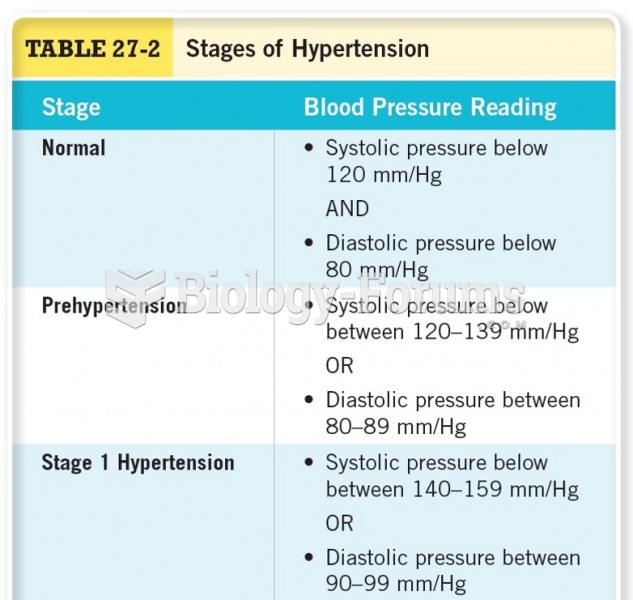Answer to Question 1
Correct Answer: 1,2,5
Rationale 1: Myalgia is an adverse effect of taking calcium channel blockers that must be reported immediately to the health care provider.
Rationale 2: Facial edema is an adverse effect of taking calcium channel blockers that must be reported immediately to the health care provider.
Rationale 3: Decreased angina is a therapeutic effect, not an adverse effect, of taking calcium channel blockers.
Rationale 4: Although the client's blood pressure should be monitored to determine the therapeutic effect of the calcium channel blocker, an increased blood pressure would not be indicative of an adverse effect.
Rationale 5: Significant constipation is an adverse effect of taking calcium channel blockers that must be reported immediately to the health care provider.
Global Rationale: Myalgia, facial edema, and significant constipation are adverse effects of taking calcium channel blockers that must be reported immediately to the health care provider. Decreased angina is a therapeutic effect, not an adverse effect, of taking calcium channel blockers. Although the client's blood pressure should be monitored to determine the therapeutic effect of the calcium channel blocker, an increased blood pressure would not be indicative of an adverse effect.
Answer to Question 2
Correct Answer: 4
Rationale 1: Although an elevation in blood pressure might indicate increased intracranial pressure, it is a less specific measure of brain cell injury than are findings of a different assessment.
Rationale 2: Although bradycardia might occur with brain cell injury, it is a less specific indicator of progression of neurological damage and insufficient therapeutic response to nimodipine (Nimotop) than is a different assessment.
Rationale 3: Neither the presence nor absence of dependent edema would indicate that a therapeutic effect is occurring for this client.
Rationale 4: Nimodipine (Nimotop) is given to reduce brain cell injury following rupture of a brain aneurysm. Frequent monitoring of neurological deficits is necessary to assess the therapeutic response to this drug.
Global Rationale: Nimodipine (Nimotop) is given to reduce brain cell injury following rupture of a brain aneurysm. Frequent monitoring of neurological deficits is necessary to assess the therapeutic response to this drug. Although an elevation in blood pressure might indicate increased intracranial pressure, it is a less specific measure of brain cell injury than are findings of a different assessment. Although bradycardia might occur with brain cell injury, it is a less specific indicator of progression of neurological damage and insufficient therapeutic response to nimodipine (Nimotop) than is a different assessment. Neither the presence nor absence of dependent edema would indicate that a therapeutic effect is occurring for this client.







